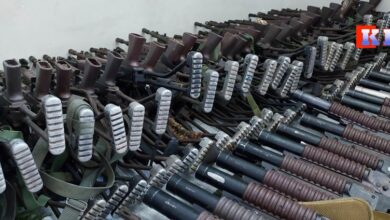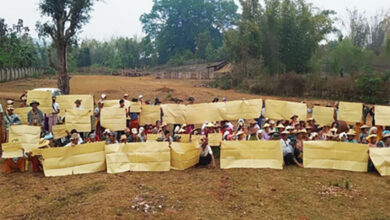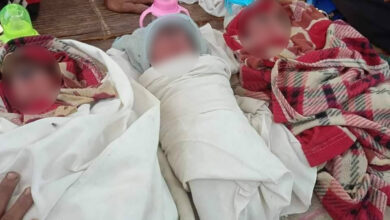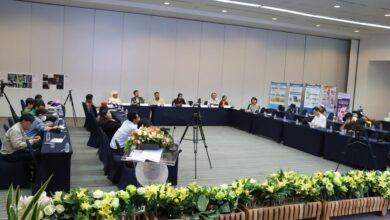BURMA COURTS: Press Freedom Hammered – Reuters Journalists, Wa Lone and Kyaw Soe Oo, Jailed for Seven Years
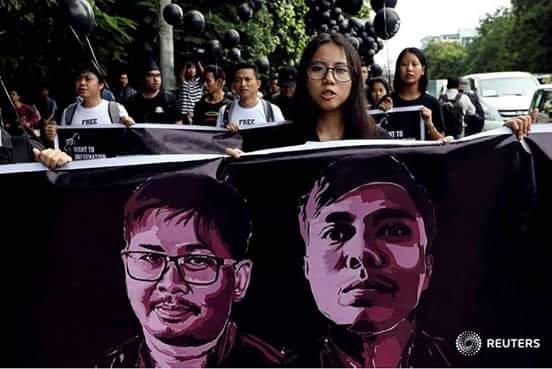
Press freedom in Myanmar took another battering today when the courts used the colonial-era Official Secrets Act to jail two Reuters journalists for seven years. The journalists,
Wa Lone, 32, and Kyaw Soe Oo, 28, have been locked up in the notorious Insein Prison since their arrest in December 2017.
The two Reuters reporters were ‘framed’ by police with the promise of ‘official leaked documents’ following an extensive investigation into war crimes against Rohingya Muslims in Northern Rakhine State.
The International Federation of Journalists condemned the sentences and said. “Wa Lone and Kyaw Soe Oo were doing nothing more than what good reporter do – investigating abuses, killings and rape against civilians by the country’s military. The Aung San Suu Kyi led Myanmar government has failed to protect journalists for investigating human rights abuses, and has politically and cynically used the country’s justice system to punish them and send a warning to other reporters that press freedom comes with severe restrictions and harsh jail terms.”
The Myanmar judge Ye Lwin, in his sentencing, denounced both Wa Lone and Kyaw Soe Oo with his disparaging comment that the reporters “tried many times to get their hands on secret documents and pass them to others. They did not behave like normal journalists.”
Internationa human rights groups, media advocates, UN, EU, US, Canada and Australia called for the release of the two Reuter journalists.
Human Rights Watch released a media statement today blasting the Myanmar courts for its decision to jail the two journalists, its Asia director, Brad Adams said. “The outrageous convictions of the Reuters journalists show Myanmar courts’ willingness to muzzle those reporting on military atrocities. These sentences mark a new low for press freedom and further backsliding on rights under Aung San Suu Kyi’s government.”
Human Rights Watch said in its statement that “hopes tied to the country’s transition from military rule have fallen aside as the new civilian administration has intensified its attacks on free speech.”
Human Rights Watch added that “since de facto leader and Nobel Peace Prize laureate Aung San Suu Kyi took office, a slew of repressive laws have been increasingly used to silence journalists and activists for perceived criticism of the government or military.”
The Myanmar court convicted Wa Lone and Kyaw Soe Oo under section 3(1)(c) of the 1923 Official Secrets Act, which carries a punishment for anyone who “obtains, collects, records or publishes or communicates to any other person any secret official … document or information” that may be “useful to an enemy.” Human Rights Watch said in response to the jailing that the “act’s overly broad provisions impose draconian criminal penalties that should be amended in line with international standards on free expression.”
Reuters’ editor-in-chief, Stephen J Adler, in a media statement said. “Today is a sad day for Myanmar, Reuters journalists Wa Lone and Kyaw Soe Oo, and the press everywhere.”
The jailing of Wa Lone and Kyaw Soe Oo comes a week after an UN report called for the Burma military to be investigated by the International Criminal Court. The UN report accused the Burma military of genocide of the Rohingya living in Rakhine state and said the military were “killing indiscriminately, gang-raping women, assaulting children and burning entire villages.”
The UN report condemned Aung San Suu Kyi for taking a passive position while the military killed, raped and burnt Rohingya people from their homes. The report blamed her for not using her position as “head of government, nor her moral authority, to stem or prevent the unfolding events in Rakhine state.”
It has is well documented by local and international human right advocates and organizations that Burma’s security forces conducted a campaign of violence against Rohingya people in 2017 that amounted to what the UN has classified as ethnic cleansing – killings, rape, mass arson and other crimes against humanity that resulted in an estimated 25,000 people killed and 800,000 people to take refuge in neighboring Bangladesh.

